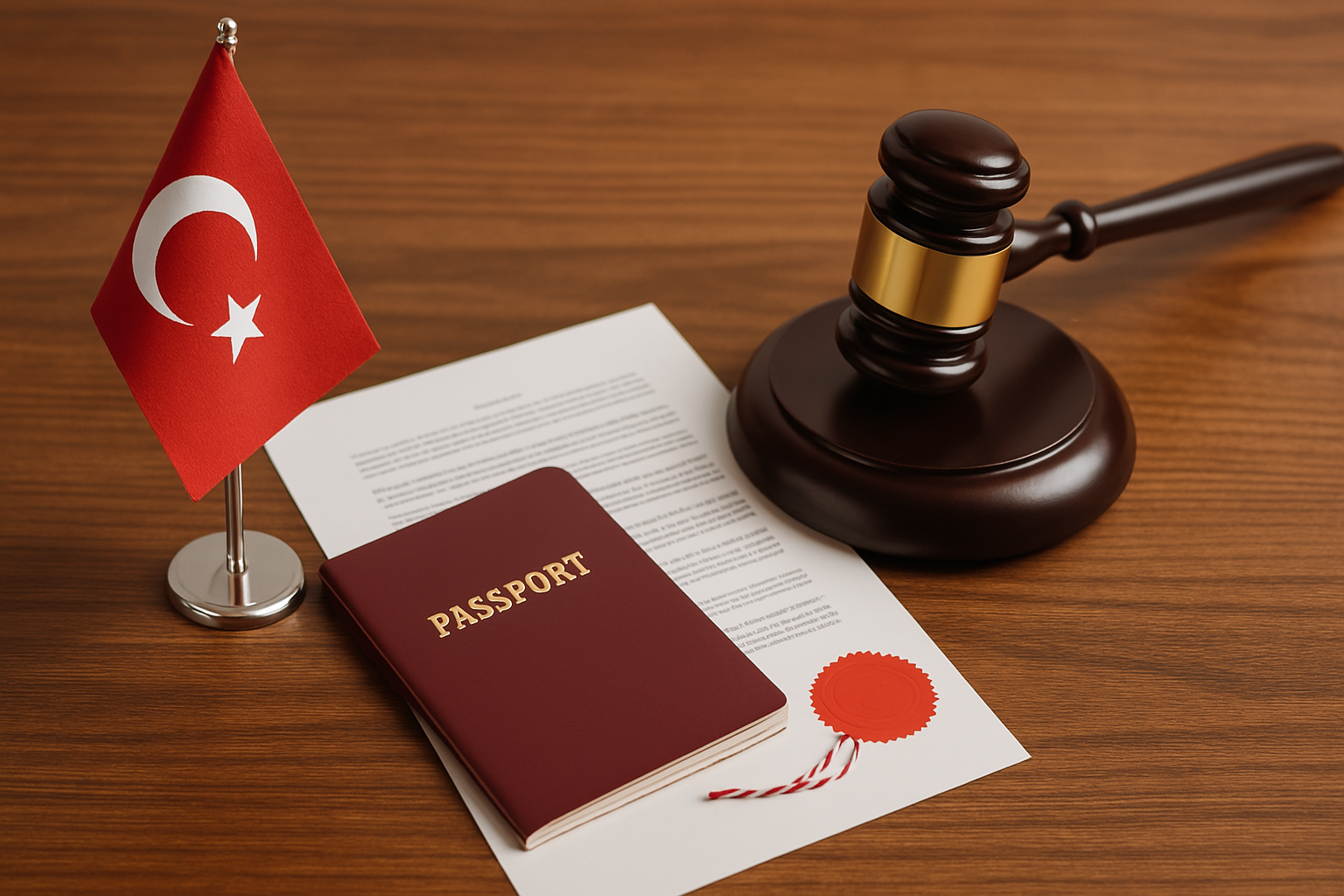Table of Contents
Picture this: You’ve just landed your dream job in Istanbul, found the perfect apartment overlooking the Bosphorus, or maybe you’re getting married to that special someone you met during your vacation in Cappadocia. Life is good! But then reality hits, you need to prove who you are, what you’ve studied, or that you’re actually single and ready to mingle (legally speaking). Suddenly, you’re drowning in terms like “apostille,” “legalization,” and “sworn translation.”
Don’t panic! I’ve been there, done that, and lived to tell the tale. Let’s break down this bureaucratic adventure together with some straight talk about the legalization of foreign documents in Turkey in 2025.
Document Legalization Wizard
Find your path through Turkish bureaucracy in minutes
What’s your document situation?
Let’s figure out which legalization process you need to follow. Start by telling us where your documents are from.
Is your country part of the Apostille Convention?
This determines the legalization process. If you’re unsure, check the list in the next step.
You need the Apostille Process
Good news! This is generally a more straightforward process for countries in the Hague Apostille Convention.
Your Document Path (Apostille)
- Get your document apostilled by the designated authority in your home country.
- Bring the apostilled document to Turkey.
- Get it translated by a sworn translator (yeminli tercüman) in Turkey.
- Have the translation certified (tasdik) by a Turkish notary (noter).
You need Consular Legalization
This process involves multiple steps, often including ministries and consulates. You usually have two main options:
Option 1: Legalize via Turkish Consulate Abroad
- Complete any necessary internal approval/authentication processes in your home country (e.g., relevant ministry).
- Get the document certified by your country’s Ministry of Foreign Affairs (MFA).
- Take the document to the Turkish Embassy or Consulate in your home country for legalization.
- Optional but Recommended: Get the document translated and have the translation certified by the same Turkish Consulate.
- Bring the legalized (and potentially translated/certified) document to Turkey – it should be ready to use.
Option 2: Legalize via Your Consulate in Turkey
- Complete internal approvals and get certification from your country’s MFA (as in Option 1, Step 1 & 2).
- Bring the MFA-certified document to Turkey.
- Take the document to your country’s Embassy or Consulate in Turkey for their certification/authentication.
- Get the document translated by a sworn translator in Turkey.
- Have the translation certified by a Turkish notary.
- Take the original document (with your consulate’s stamp) and the notarized translation to the Turkish Ministry of Foreign Affairs (in Ankara) or the local Governor’s Office Legal Affairs Department (Valilik Hukuk İşleri Müdürlüğü) for final Turkish legalization (üst yazı/şerh).
Note: Option 2 often involves more steps within Turkey. Confirm procedures with your consulate and Turkish authorities.
What type of document do you have?
Knowing the document type helps, but the primary factor for legalization is whether your country uses the Apostille system. Please select the origin country status next.
Check Apostille Convention Status
Verify if your document’s country of origin is a member of the Hague Apostille Convention.
Official List & Common Examples
The definitive list is maintained by the Hague Conference on Private International Law (HCCH).
Common Apostille Members Include:
- USA
- UK
- Germany
- France
- Australia
- Russia
- Japan
- Brazil
- South Africa
- India
- (Most EU)
- …and 120+ others
Check the full, official list here:
HCCH Apostille Section – Status Table
The Great Document Divide: Apostille vs. Consular Legalization
Here’s the first “aha” moment you need: not all countries are created equal when it comes to document legalization. The world is divided into two clubs:
- The Apostille Club – Countries that signed the Hague Apostille Convention (like the USA, UK, Germany, and about 120 others)
- The Non-Apostille Club – Countries that didn’t sign the Convention (like Egypt, Canada, and several others)
Want to check if your country is in the club? You can find the complete and up-to-date list of Apostille Convention member countries here: https://www.hcch.net/en/instruments/conventions/status-table/?cid=41
Think of the Apostille as the VIP fast pass at an amusement park. If your document comes from an Apostille country, you get to skip some of the lines and hassle.
If Your Document Comes From an “Apostille Club” Country
Let’s say you’re American and need to use your university diploma in Turkey. Here’s what you DON’T do: don’t bring your original diploma to Turkey and then try to get it apostilled here. That’s like trying to get a French pastry certified as authentic in Japan, it just doesn’t work that way!
Instead, here’s your step-by-step guide for the legalization of foreign documents in Turkey:
- Get your apostille in your home country – For Americans, this typically means contacting your state’s Secretary of State office. Your document gets a fancy certificate attached to it, essentially saying, “Yep, this is legit!”
- Bring your apostilled document to Turkey
- Get it translated by a sworn translator – These aren’t just any translators, they’re officially recognized by Turkish courts. Think of them as the document world’s certified interpreters.
- Head to a Turkish notary – They’ll certify the translation. In 2025, this will set you back around 1,200 TL for a simple document like a diploma or passport.
And voilà! Your American diploma is now ready to impress potential Turkish employers or educational institutions as part of the legalization of foreign documents in Turkey process.

If Your Document is from a “Non-Apostille Club” Country
Let’s say you’re Egyptian with documents from Cairo. You actually have two possible routes, and I’m going to walk you through both. Think of them as two different hiking trails to the same mountain peak, each with its own scenic views and challenges!
Method 1: The “Handle It Before You Leave” Route
- Start at your country’s internal approval processes – Get all the necessary local validations.
- Visit your country’s Ministry of Foreign Affairs – They need to authenticate the document first.
- Visit the Turkish consulate in your home country – Your document needs to be legalized by the Turkish consulate in Egypt before you even pack your bags for Turkey.
- Get it translated in your home country (if needed)
- Have the translation certified by the Turkish consulate
- Bring these documents to Turkey – They’re now ready to use without further authentication!
This method is like preparing a complete travel kit before your journey, everything’s ready when you arrive.
Method 2: The “Finish It in Turkey” Route
If you’re already in Turkey or prefer to handle most of the process there, here’s your alternative path:
- Get your document authenticated by your country’s Ministry of Foreign Affairs (in this case, Egypt’s MFA)
- Bring the document to Turkey
- Visit your country’s embassy/consulate in Turkey (the Egyptian Embassy/Consulate)
- Have the document translated in Turkey by a sworn translator
- Get the translation notarized by a Turkish notary
- Take everything to the Turkish Ministry of Foreign Affairs in Ankara (if the foreign consulate is in Ankara) or to the Governor’s Office (if the consulate is in another city)
This approach is like assembling your furniture after delivery, more work on arrival, but sometimes more convenient.
Think of it like this: without the Apostille “fast pass,” your document needs extra verification stops along the way, but you have options about where to make those stops!
The Translation and Notary Game: Costs and Tips for Legalization of Foreign Documents in Turkey
As of 2025, here’s what you should budget for this bureaucratic adventure in the legalization of foreign documents in Turkey:
- Translation: About 360 TL per 1,000 characters for English to Turkish (that’s roughly one page). French to Turkish will run you around 408 TL per 1,000 characters.
- Notary fees: Starting at approximately 1,200 TL for simple documents like diplomas or passports, with prices climbing for lengthier documents.
Pro tip: Make friends with someone who speaks Turkish. Not only will they help you navigate the process of legalizing foreign documents in Turkey, but they might also know a reliable sworn translator who won’t charge you the “foreigner tax.”
Document Legalization Cost Calculator
Estimate your expenses for 2025 (TRY & USD)
- Try to get all documents translated at once to potentially receive a volume discount.
- Consider having translations done in your home country if rates are lower (but check if they’ll be accepted in Turkey).
- Ask native Turkish speakers for recommendations on reliable but affordable sworn translators.
- Complete as much of the process as possible before arriving in Turkey to minimize costs.
The Digital Revolution: E-Apostille in Turkey
Turkey has been stepping up its digital game with an e-apostille system. The good news? It exists! The not-so-good news? It’s currently only for Turkish documents going abroad, not for bringing your foreign documents into Turkey.
So while your Turkish friends can get their birth certificates apostilled with a few clicks on e-Devlet (Turkey’s e-government portal), you’ll still be doing the paperwork dance the old-fashioned way.
The Ministry of Foreign Affairs Appointment System
If your document journey takes you to the Turkish Ministry of Foreign Affairs (T.C. Dışişleri Bakanlığı) in Ankara, here’s a crucial tip: they operate on an appointment-based system! You can’t just show up with your documents and expect service.
Before heading there, you must book an appointment through their official websites:
- https://tasdik.mfa.gov.tr or
- https://disisleritasdik.mfa.gov.tr
Their office hours are weekdays from 9:00 AM to 12:00 PM and 1:30 PM to 4:00 PM, and they’re located at Balgat Mah. 1419. Sk. No:18 Çankaya/ANKARA.
Think of this appointment as your backstage pass, without it, you’re not getting through the door!
Important Note About Apostilled Documents
Here’s something crucial that trips up many newcomers: If your document already has an apostille, do NOT take it to the Turkish Ministry of Foreign Affairs for certification. They explicitly cannot certify documents that already have an apostille.
The whole point of an apostille is that it’s the end of the road, no further authentication needed. Documents with apostilles can be used directly by authorities in any other Apostille Convention country, including Turkey.
Real Talk: Common Misconceptions
Let me save you some headaches by clearing up some common misconceptions:
- Myth: “I need to get my foreign document apostilled at the Turkish Ministry of Foreign Affairs.” Reality: Nope! The apostille happens in the country that issued the document, and the Turkish MFA actually cannot certify already-apostilled documents.
- Myth: “My embassy/consulate in Turkey can authenticate my documents.” Reality: This is actually partially true! While the US Embassy in Turkey explicitly states they can’t authenticate US documents for use in Turkey, some other countries’ embassies and consulates in Turkey can authenticate their national documents as part of Method 2 described above.
- Myth: “Once I get to Turkey, all my document troubles are over!” Reality: Unless you completed Method 1 fully before arriving, you’ll still have several steps to complete in Turkey, which can take time, money, and multiple visits to different offices.
Test Your Document Legalization Knowledge
Can you spot the common misconceptions?
The Final Word: Be Prepared for Legalization of Foreign Documents in Turkey!
If there’s one thing I’ve learned from navigating bureaucracy around the world, it’s that preparation is your best friend. Before you arrive in Turkey:
- Research whether your country is part of the Hague Apostille Convention.
- Start the legalization process in your home country.
- Budget for translation and notary fees once you arrive.
- Check with the specific Turkish institution (university, employer, marriage bureau) about any additional requirements they might have for the legalization of foreign documents in Turkey.
And remember, what seems like an endless bureaucratic maze for legalizing foreign documents in Turkey is actually just a series of steps. Take them one at a time, maybe with a Turkish coffee in hand, and before you know it, your documents will be as legitimate in Turkey as a perfectly grilled kebab.
Welcome to Turkey, where the views are spectacular, the food is amazing, and the legalization of foreign documents process… well, at least now you know how to handle it!







